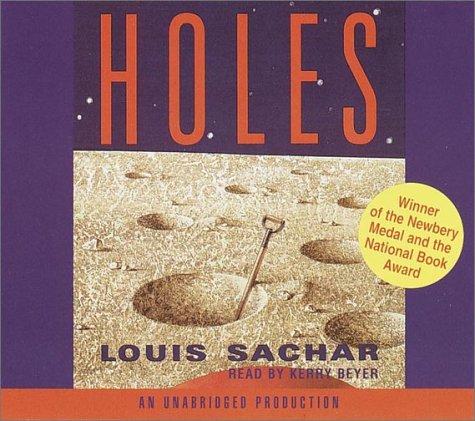nerd teacher [books] reviewed Holes by Louis Sachar
The Ending Always Bothers Me
4 stars
Overwhelmingly, I adore this story. It's a book that I've often found interesting for how commonly it's recommended in schools and usually used within the curriculum of English classes, particularly as the core elements of the text should provide ample material for someone to start questioning everything that's happening.
It should provide kids with a moment to go "Wait, there are juvenile detention centers? Prisons for children?" But then I remember the ways in which the book is usually taught, and you find a bunch of teachers who seem to think that sometimes kids do need them, and they teach the book in a way that still reflects a common belief: If you're guilty of something, you should do the time. If you're not guilty, it's bad. (And if it's taught outside the US, it puts special attention on the fact that this is what Americans do …
Overwhelmingly, I adore this story. It's a book that I've often found interesting for how commonly it's recommended in schools and usually used within the curriculum of English classes, particularly as the core elements of the text should provide ample material for someone to start questioning everything that's happening.
It should provide kids with a moment to go "Wait, there are juvenile detention centers? Prisons for children?" But then I remember the ways in which the book is usually taught, and you find a bunch of teachers who seem to think that sometimes kids do need them, and they teach the book in a way that still reflects a common belief: If you're guilty of something, you should do the time. If you're not guilty, it's bad. (And if it's taught outside the US, it puts special attention on the fact that this is what Americans do... when people outside the US also do shit like that, too. None of us are guiltless here.)
And I really like that it's one of the few books (especially that is usually accessible to kids) that earnestly engages with homelessness without demonising homeless people or any of the actions that they may take to survive in this bullshit world. It's truly empathetic, which is something so frustratingly uncommon. (Not to mention, it's one of the few books that actually talks about it at all, as if it's something entirely foreign to the world we live in. Which... it should be, but it's not.)
But I always hate the ending. I hate that the moral of the story is covered up by sudden wealth and riches, I hate that there's nothing showing a truly collective society or Stanley's family using that wealth (as annoying as that is) to help other people who are homeless or incarcerated... I hate that it's just so "If you do good, you will be rich!" when that lesson... Is just disappointingly wrong on so many levels.
Also, I'm not a huge fan of the whole thing about Madame Zeroni being a Rromani woman (presumably, since that is the most common demographic in Latvia) who curses a whole family for a teenage boy momentarily forgetting and then being unable to fulfill his promise. While I like the idea of the 'curse', I feel like there could either be some discussion to disrupt this tropey view of the Rromani (e.g., the curse is more related to the responsibility of both Elya Yelnats and the many men named Stanley Yelnats and they wrongly blame it on her)... Or something else entirely (something in a similar but opposite vein as Louise Walker's family just hunting down a treasure and never finding it).




